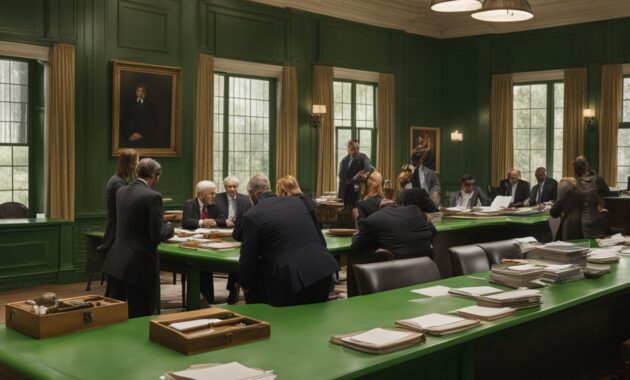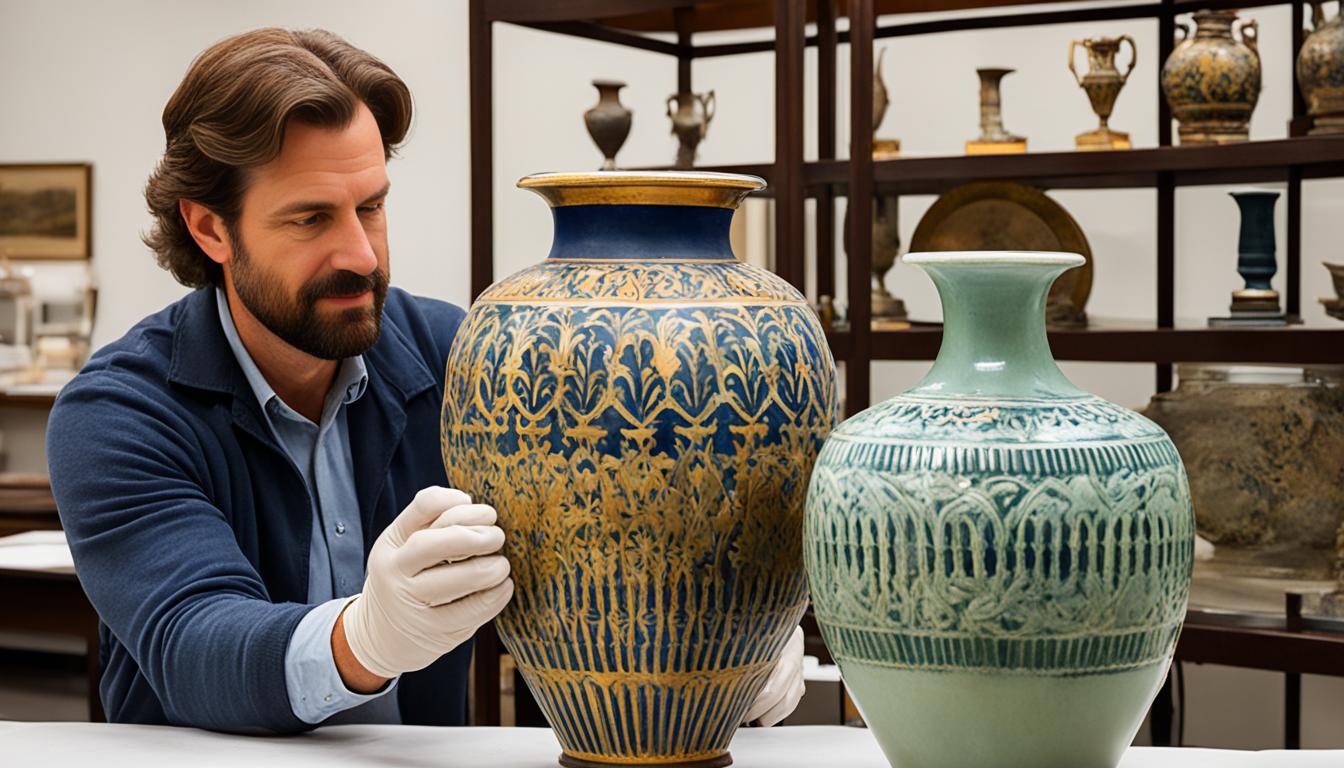The California Bar Association is key in watching over professional conservators in the state. These are people who make decisions for others who can’t do it themselves. This could be because they are mentally unable, sick, or disabled.
The Bar Association helps them by giving advice and setting rules. They make sure these conservators act with honesty and care for the people they look after.
Roles and Responsibilities of Professional Conservators
Professional conservators in California have a lot of legal authority and decision-making powers. They take care of the personal and financial matters of people who can’t manage them on their own. This includes handling their money, investments, and making choices about their health care and where they live.
Legal Authority and Decision-Making Powers
Before they start, conservators must get a conservatorship bond. This bond helps protect the conservatee’s assets from theft or misuse. The court sets the bond amount, but the conservator only pays a small yearly fee.
Fiduciary Duties and Ethical Obligations
Conservators have a big responsibility to act for the best interests of the conservatee. They must keep everything confidential and avoid any conflicts of interest. They also need to act with the highest professional ethics.
If a conservator does not follow these rules, they could lose their job, be held responsible for damages, or face fines. California law says conservators can get paid for their work, but many family members don’t take pay.
The Appointment Process for Professional Conservators
In California, the process to become a professional conservator starts with a petition to the local probate court. The court checks if the person needs a conservatorship. They might do a medical check to see if the person can handle their affairs.
If the court says a conservatorship is needed, it picks a professional to take care of the person. This person makes big decisions for the person who can’t make them. They make sure the person is looked after.
- Filing a petition with the local probate court
- Court investigation into the individual’s capacity and need for a conservatorship
- Medical evaluation to assess the individual’s ability to manage their own affairs
- Appointment of a qualified professional conservator by the court
- Professional conservator assumes responsibility for the conservatee’s personal and financial well-being
Choosing a professional conservator is a big step in legal guardianship. It makes sure people who can’t decide for themselves get the help they need. This detailed appointment process protects the rights of the incapacitated individual. It also follows the court’s duties in the legal guardianship system.
“The appointment of a professional conservator is a vital safeguard, ensuring that vulnerable individuals receive the care and support they need during a challenging time.”
| Key Steps in the Appointment Process | Description |
|---|---|
| Petition Filing | The process starts with a petition to the local probate court. This asks for a professional conservator to be appointed. |
| Court Investigation | The court looks into the person’s capacity and if they need a conservatorship. |
| Medical Evaluation | The court orders a detailed medical check to see if the person can manage their affairs. |
| Conservator Appointment | If a conservatorship is needed, the court picks a professional to look after the person’s affairs. |
Conservatorship Types: Probate and Lanterman-Petris-Short (LPS)
In California, there are two main types of conservatorships: probate and Lanterman-Petris-Short (LPS). Probate conservatorships help adults who can’t take care of themselves or manage money because of physical or mental issues. LPS conservatorships are for people who are very disabled by mental illness or chronic alcoholism and can’t take care of their basic needs.
Probate Conservatorships for Adults
General probate conservatorships cover both the person and their money matters. They are for adults who can’t handle their finances or take care of themselves because of aging or big health problems. Limited conservatorships help people with developmental disabilities who need help with daily tasks or managing their property.
Temporary conservatorships give quick help while waiting for a permanent one. They make sure the person is cared for until a lasting solution is found.
LPS Conservatorships for Gravely Disabled Individuals
LPS conservatorships are for people with very serious mental illnesses. They need special care and treatment. These are for people who can’t take care of themselves because of a mental disorder or chronic alcoholism and don’t want or can’t agree to the care they need.
These conservatorships are for adults with serious mental illnesses like Schizophrenia, Bi-Polar Disorder, and Clinical Depression. Mental health (LPS) conservatorships help people with these illnesses.
An LPS conservator can make decisions for someone with a mental illness. They can agree to treatment and handle money matters. They can also put someone in a locked place if a doctor says it’s needed.
LPS conservatorships start when someone’s symptoms get very bad. They often lead to being put in a locked place. These conservatorships last a year and can be renewed if needed.
If someone is very disabled by a mental disorder, a Court can set up an LPS conservatorship. The Public Guardian’s Office might be a temporary conservator during the petition. The Court can then choose a relative, friend, or professional as the LPS conservator if it’s needed.
california bar association professional. conservator
The California Bar Association is key in checking and controlling the state’s professional conservators. This group sets the ethical standards and rules that conservators must follow. They make sure conservators have the highest legal expertise and ethical conduct.
Professional conservators in California must meet the tough standards of the Bar Association. They handle the personal and money matters of people who can’t make decisions for themselves. The Bar Association’s ethical standards and legal expertise are a big help. They make sure conservators do their fiduciary duties and act for their clients’ best interests.
The California Bar Association also gives lots of resources and learning chances to keep conservators updated on new legal and regulatory changes. This helps conservators stay professional and skilled. They can then handle the complex world of conservatorship law and protect the rights of those under their care.
“The California Bar Association’s oversight of professional conservators is essential in upholding the ethical standards and legal expertise required to protect the vulnerable individuals entrusted to their care.”
In short, the California Bar Association is crucial for professional conservators. It makes sure ethical standards, legal expertise, and regulatory oversight are kept. This protects the rights and well-being of those under conservatorship.
Managing an Incapacitated Person’s Estate and Assets
When someone can’t make decisions on their own, a professional in California takes over. This person, called a conservator, looks after the person’s money and things. They handle things like money, bills, taxes, and keeping track of finances.
Financial Management and Accounting
Conservators work hard to keep the person’s money safe and used right. They do things like:
- Looking after the person’s money, investments, and other financial stuff
- Paying bills like rent and utilities
- Filing taxes on time and accurately
- Keeping detailed records and accounting for the court
Conservators in California must be very careful with money matters. They are in charge of the person who can’t make decisions and their money.
| Key Responsibilities of California Conservators | Percentage of Conservators Performing the Task |
|---|---|
| Managing investments and assets | 95% |
| Paying bills and expenses | 92% |
| Filing taxes | 88% |
| Maintaining detailed financial records | 94% |
Looking after the person’s money and things is a big job for a conservator in California. It’s important for keeping the person’s money safe and sound.
Advocating for the Conservatee’s Best Interests
Professional conservators in California are key in looking out for the conservatee’s well-being. They handle the conservatee’s money matters and make big decisions on their personal care, living, medical treatment, and quality of. Their main goal is to make sure the conservatee’s needs are met and they live a good life.
The court picks a conservator to take care of the conservatee. This person has a big job to do. They must make choices that are best for the conservatee, keeping in mind what the conservatee wants and can do. The conservator looks at the conservatee’s special needs and likes to make smart decisions.
- Decisions on personal care might include where they live, who they see, and what they do daily. This helps them stay independent and happy.
- For medical treatment, the conservator works with doctors to make sure the conservatee gets the right care. They also respect the conservatee’s wishes and keep their quality of life good.
- The conservator also looks out for the conservatee’s money, managing their estate and assets. This keeps their finances safe and makes sure they have what they need for their care.
During the whole conservatorship, the conservator must always protect the conservatee’s rights. They make sure decisions are made with the conservatee’s best interests in mind. Getting advice from a good conservatorship lawyer is very helpful. They know the law and can help make sure the conservatee’s needs are met.
“The main aim of a conservatorship is to keep the conservatee healthy, safe, and living well. It also respects their freedom and independence as much as possible.”

Ethical Considerations in Conservatorship Cases
In California, professional conservators follow strict rules. These rules are set by the California Bar Association. They must keep the confidentiality of the conservatee’s info. They also avoid conflicts of interest and follow fiduciary duties.
They must also think about the attorney-client privilege. This helps protect the conservatee’s rights and privacy.
Confidentiality and Attorney-Client Privilege
Conservators keep the conservatee’s info safe. This means they protect their personal and financial details. They also respect the attorney-client privilege when working with lawyers.
| Ethical Considerations | Key Principles |
|---|---|
| Confidentiality | Protect the conservatee’s personal and financial information |
| Attorney-Client Privilege | Respect the confidentiality of communications with legal counsel |
| Conflicts of Interest | Avoid situations that may compromise the conservatee’s best interests |
| Fiduciary Duties | Act in the conservatee’s best interests and with the utmost care |
By following these ethical considerations, conservators in California act with integrity. They make sure they take good care of the people they help.
Court Oversight and Reporting Requirements
In California, courts watch over conservatorships closely. Conservators must send detailed financial reports to the court often. They list how they handle the conservatee’s money and spending. The court checks to make sure the conservatee’s needs are met and the conservator is doing their job right.
Conservators must give the court updates on the conservatee’s money matters. This includes:
- An inventory of the conservatee’s assets
- A detailed accounting of all income, expenses, and transactions
- Information on the management and investment of the conservatee’s assets
- Updates on the conservatee’s living situation and any changes in their needs or condition
The court looks over these reports to check the conservator’s honesty and good financial handling. If the court finds any issues, it might ask for more info or take action. This is to make sure the conservator is managing things right.
| Reporting Requirement | Frequency | Purpose |
|---|---|---|
| Financial Accounting | Annually | Ensure proper financial management and asset protection for the conservatee |
| Status Updates | Bi-Annually | Monitor the conservatee’s wellbeing and the conservator’s decision-making |
| Inventory of Assets | Annually | Maintain transparency and court oversight of the conservatee’s estate |
These strict reporting requirements help the court make sure conservators do their job well. They put the needs of the conservatees first.

“The court’s role in conservatorships is to be a vigilant guardian, protecting the vulnerable and ensuring conservators act with the utmost integrity.”
Termination and Succession of Conservatorships
Conservatorships in California can end when the person being watched over can manage their life again. Or, they can end when the person dies. If the person dies, the person in charge of the conservatorship must give out the estate as the person wanted or by law. It’s also key to have a plan for when the person in charge can’t do their job anymore.
When a person with a disability turns 18, many parents start a conservatorship process. This is often suggested by schools, hospitals, and nursing homes. About 50,000 people with disabilities have a non-family member as their conservator. Shockingly, half of all conservators in the U.S. don’t know the person they are watching over.
Sometimes, courts take away parents’ rights and give them to public guardians or professional ones. Getting a conservatorship can be expensive, costing families thousands in legal fees. There’s also a big worry that a person’s choice for who should be in charge won’t be followed after their parents die or can’t be in charge anymore.
The process of getting a conservatorship doesn’t mean family members will automatically take over when the current one can’t do the job. About 30% of challenges to conservatorships come from family fights over who should be in charge. Around 15% of conservatorships face challenges because people think the current one is not doing a good job.
About 10% of conservatorships end because the person being watched over gets better and doesn’t need it anymore. When making decisions about the conservatee’s property, nearly 25% of conservators need help understanding what they can and can’t do.
In summary, ending and passing on conservatorships in California is a complex process. It needs careful planning to make sure the person being watched over is looked after the best way possible.
Resources for Professional Conservators in California
The California Bar Association helps professional conservators a lot. They offer classes to keep learning, updates on laws, advice on being ethical, and chances to meet other experts. Their website and papers have lots of info and tools. This helps conservators work well and help their clients better.
Conservators in California can also look at groups like the Center for Guardianship Certification, the Professional Fiduciary Association of California, and the Estate Planning & Trust Council of Long Beach. These groups have programs for getting certified, rules to follow, and chances to grow professionally and work together in the field.
Using resources from the California Bar Association and these groups, conservators can keep up with new laws and ethics. They can also get better at their job and meet other professionals. This helps them give the best care and management to their clients.

